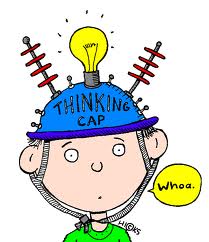The Two Most Important Critical Thinking Skills
Author: Steve Gillman
The two most important critical thinking skills are not keen observation nor logic. These help, but both of these come pretty naturally in humans (though we often choose to ignore logic). The skills I am referring to are less common, at least in their fully developed forms. That said, considering that they lead to more powerful thinking than just about anything else.
What are these critical thinking skills? They are habitual placing of truth above any other considerations, and the derivative skill of self observation and awareness (italics added). We all know how to look at something, yet we often see not what is there, but what needs to be there to confirm our beliefs. Truth has to be above even our beliefs if we are to have the most powerful mind possible.
We also all know how to use logic to support our conclusions. But our conclusions are often arrived at by a process we are only partially aware of. To see where they really come from, and therefore whether they truly align with the truth, we need to see into our own thought processes.
The Ego Problem
The humblest person still usually has an ego so big that he can’t see past it. By that I mean that whatever he thinks of himself, he sees that as important. This tendency to create and defend a ‘self” clearly gets in the way of developing ones critical thinking skills.
Let’s look at a simple example. Have you ever noticed that you can predict some people’s behavior better than they can themselves? Amy will be late, though she thinks she’ll be on time. Eric is excited about the new get-rich-quick MLM business he’s in, but his friends all think he’ll be out of it in a year – and they’re right. Now, it would seem that a person should know more about himself or herself than any outsider, and therefore have a better ability to predict his or her own future behavior.
The truth is that we don’t see things as clearly when they involve our self images. You might say “that’s not true in my case!” If so, thank you. That immediate reactive need to defend yourself makes my point. A more rational response would be to say, “Hmm, is this true? Do I distort things to retain my sense of self?”
Okay, it’s possible you have investigated this thoroughly and found that you are indeed the rare individual who is truly and always objective. But if you haven’t done this “self work” and done it well, a reactive “not me” is premature, and a great example of the forces that distort our view of reality whenever it touches on our view of ourselves.
It is tempting to think that this is only relevant in areas directly and obviously related to ones self image, and that we can still be objective about things like politics, or science, or money issues. But that just isn’t the case. The “ego effect” is far more subtle than that. For example, you might think that a given political or philosophical view you have is correct, and it may be. But if evidence to the contrary is presented, do you find yourself automatically defending your belief?
Think about that. If truth was truly the goal, you would be happy to find it, even if it overturned everything you believed. But we identify with our beliefs in the same way we identify with our bodies, our families, countries, and even our houses and other things. They are a part of our “ego self,” and so are defended as though or true self was under attack. That is not a recipe for objective thought, is it?
Now if a man believes that stocks should sell for 40 times earning, or that donuts are healthy, we can see how these mistaken beliefs can be disastrous. But anytime we think and operate according to beliefs that are not in line with the truth, with reality, there is a danger. To have the most powerful mind you can have, then, you need to habitually look for truth more than confirmation of existing belief, and to do that you need to be aware of what is going on inside your own mind. These are the critical thinking skills that are most important.
Article Source: http://www.articlesbase.com/psychology-articles/the-two-most-important-critical-thinking-skills-783867.html
About the Author
Copyright Steve Gillman. For inventions, new product ideas, business ideas, story ideas, political and economic theories, deep thoughts, and New Ideas of every sort, visit: http://www.999ideas.com/blog






